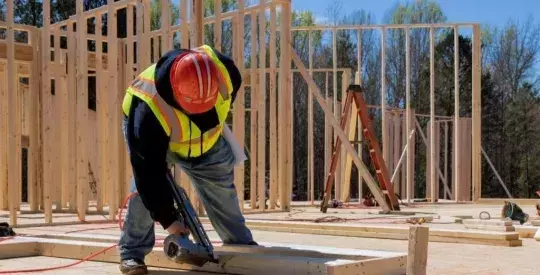
Baltimore is embarking on a comprehensive and ambitious housing redevelopment initiative, projected to cost $6.2 billion over the next 15 years. This monumental undertaking aims to revitalize more than 37,000 vacant or deteriorating properties and positively impact an additional 33,000 homes and lots throughout the city. With significant financial backing, including $1.2 billion in public sector commitments and an expected $5 billion from private investments, this program is designed to redefine urban renewal strategies across the nation. The initiative emphasizes a holistic approach, focusing on the transformation of entire neighborhoods by integrating housing improvements with vital infrastructure, commercial corridors, green spaces, and community facilities, rather than addressing properties in isolation. This integrated strategy seeks to create sustainable economic opportunities and foster stronger, more vibrant communities.
This pioneering program, dubbed 'the nation's most ambitious housing redevelopment program' by civic leaders, is a collaborative effort led by the Greater Baltimore Committee (GBC), the Mayor's Office, and BUILD Baltimore. Its coordination is facilitated through Reinvest Baltimore, an entity established by Governor Wes Moore in 2024. The strategic emphasis on tackling entire blocks, rather than individual residences, distinguishes this initiative from previous revitalization attempts. This approach ensures that housing investments are seamlessly integrated with broader community development goals, such as enhancing local infrastructure, supporting commercial growth, and developing public parks and community areas. The long-term vision extends beyond merely filling empty houses; it aims to cultivate thriving, interconnected communities with improved quality of life for residents.
The financial foundation of this initiative is robust, with the city of Baltimore committing $300 million, including a new tax increment financing program specifically designed to support affordable housing solutions. Furthermore, the state of Maryland has pledged $900 million over the coming years for housing and neighborhood reinvestment. These combined public funds are anticipated to contribute to a total public support of $3 billion over the program's duration, acting as a catalyst for substantial private sector engagement. Already, major financial institutions such as PNC, Bank of America, JPMorgan Chase, and T. Rowe Price have joined the effort, signaling strong private sector confidence in Baltimore's vision. The GBC has also initiated a request for information to identify a partner who can help craft investment vehicles that align both public and private sector priorities, ensuring a cohesive and impactful development strategy.
Early indications suggest the effectiveness of Baltimore's renewed focus on reducing vacant residential properties. Data from the Urban Institute confirms positive outcomes from recent efforts, providing a promising outlook for this expanded initiative. Public Financial Management Systems, a consulting firm, projects that the comprehensive plan could generate over $7.3 billion in economic value across three decades. This economic impact is expected through increased tax revenues, significant job creation, and a rise in property values. Moreover, the private capital strategy, developed by Forsyth Street Advisors, incorporates innovative tools like shared-appreciation mortgages and rental loans designed to support small developers, fostering broader participation in the revitalization process. This multi-faceted approach, building on the successes of prior projects like ReBUILD Metro's transformation of East Baltimore, aims to ensure that revitalization leads to sustainable growth without displacing existing residents, thereby strengthening the city's social and economic fabric.
